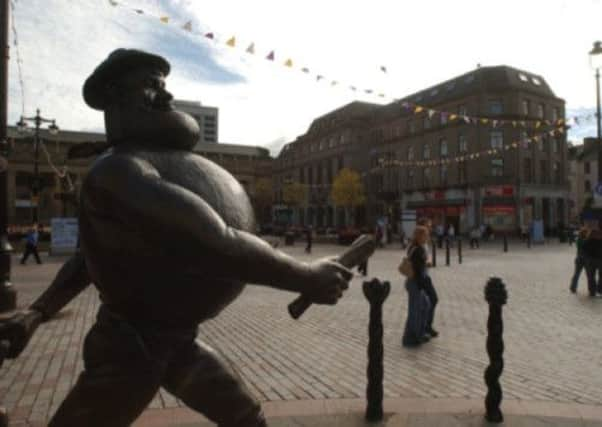Brian Ferguson: Dundee could host next big thing


For Glaswegians of a certain vintage, the very phrase “The Big Day” conjures up golden memories of that long, hot, adrenaline-charged and wonderfully chaotic event in the early summer of 1990 when the city fell under the spotlight like never before.
It’s worth considering that despite everything in Glasgow since, the centrepiece event of its reign as European capital of culture, nothing has quite matched what unfolded when it staged Scotland’s biggest ever live music event.
Advertisement
Hide AdAdvertisement
Hide AdFive years after Scots had watched on in awe at the incredible footage from Live Aid, suddenly they had a chance to be part of something equally epic.
With the exception of Simple Minds, every big Scottish band of the time – when acts such as Deacon Blue, Hue & Cry, Big Country, Texas and Wet Wet Wet were regularly troubling the “top 40” – performed on one of four stages scattered across the city
An overall crowd for the day of between 250,000 and 400,000 was estimated. The 12-month programme staged across Glasgow during 1990 triggered a cultural transformation that has never stalled since and is still gathering pace, with confirmation of the MTV Europe Music Awards coming next year.
And it is exactly this kind of artistic revolution that those behind Dundee’s bid to become UK city of culture in 2017 believe it is on the threshold.
I cannot for the life of me fathom why the contents of the bid document presented in Londonderry last week had to be remain so firmly under wraps beforehand.
Trying to sum up 130-odd pages for a story in The Scotsman was no easy task, such was the scale and breadth of the ambition they contained. Even narrowing down ten highlights was well nigh impossible.
For Dundee to be seemingly on the verge of bidding to host the Turner Prize, the Man Booker Prize, the international Comic-Con convention, MTV, Disney, NASA (yes, that NASA) and AC Milan within the space of a year is pretty remarkable. But it struck me that perhaps the strongest element of Dundee’s bid is there was nothing in it that seemed outlandish, unrealistic or undeliverable.
With Dundee already pressing ahead with the waterfront V&A museum, regardless of the bid’s success, why shouldn’t it also develop one of Scotland’s biggest new arts spaces in a disused former printworks and be bidding to create a new partnership with the Tate?
Advertisement
Hide AdAdvertisement
Hide AdThe prospect of Alan Cumming appearing in a one-man production based on the life of William McGonagall, a floating Scottish Opera production in Broughty Ferry’s harbour, a major new commission from dance choreographer Michael Clark and the involvement of design guru Wayne Hemingway are mouth-watering to say the least.
Throw in the prospect of the River Tay’s iconic bridges taking centre-stage in the celebrations, French street theatre and pyrotechnics experts lighting up the city, and the British Museum sending priceless treasures from Ancient Rome north for a blockbuster exhibition, and you get a tantalising glimpse of what may lie ahead.
Of course, Dundee is on tenterhooks right now, awaiting the decision on Wednesday from the judges on whether it or or rival contenders Hull, Leicester or Swansea Bay will be awarded the culture capital crown.
Regardless of the result, I do hope that the momentum built up from the bid gathers a full head of steam.
Despite the obvious distraction of the independence referendum, the Scottish Government has thrown its weight behind the bid, slightly belatedly, but forcefully nonetheless.
A £25 million price tag for a successful bid may seem somewhat hefty, but Alex Salmond’s SNP administration has already agreed to sign off the biggest chunk of that, of almost £6 million.
The next biggest contribution, from the city council, is a mere £2m.
And the investment of that money should be secured, culture capital title or not, as the city’s launchpad for the future.